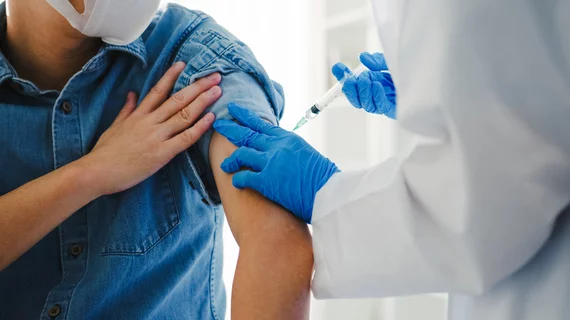Global healthcare partnership targets ‘the big catch-up’ vaccination initiative
A number of healthcare leaders have partnered together in “The Big Catch-Up,” a targeted global effort to boost vaccination of children after a drop off from the COVID-19 pandemic. Participants include the World Health Organization (WHO), UNICEF, the Vaccine Alliance and the Bill & Melinda Gates Foundation.
The initiative aims to reverse the declining trend in childhood vaccination that has been recorded in more than 100 countries since the start of the COVID-19 pandemic. Healthcare disruptions, including closed providers and clinics, overburdened healthcare facilities, supply chain delays and constraints and more have all had a negative impact on childhood vaccination efforts.
In fact, more than 25 million children missed out on one or more vaccines in 2021 alone, WHO stated. Outbreaks of diseases that can be combated with vaccines, such as measles, diphtheria, polio and yellow fever, are already becoming more prevalent and severe.
“The Big Catch-up aims to protect populations from vaccine-preventable outbreaks, save children’s lives and strengthen national health systems,” WHO said.
The initiative calls on people and governments everywhere to do their part to catch up on vaccinations, focusing on 20 countries where three quarters of the children who missed vaccinations in 2021 live. These include Afghanistan, Angola, Brazil, Cameroon, Chad, DPRK, DRC, Ethiopia, India, Indonesia, Nigeria, Pakistan, Philippines, Somalia, Madagascar, Mexico, Mozambique, Myanmar, Tanzania and Viet Nam.
“We cannot allow a legacy of the pandemic to be the undoing of many years’ work protecting more and more children from deadly, preventable diseases,” Seth Berkley, MD, CEO of Gavi, the Vaccine Alliance, said in a statement. “Global health partners, working with governments and communities, must do everything we can to protect the life of every child.”
While childhood vaccination has declined globally over the last couple years, there are some “bright spots,” according to WHO. In particular, essential immunization recovered in India in 2022, while Uganda maintained high coverage levels during the pandemic and Kenya improved its reach to more vulnerable populations, including nomadic populations in the north of the country.
Partners in the effort will work with countries to build trust and improve healthcare delivery, including vaccinations. In addition to improving childhood immunizations, the effort aims to introduce the human papillomavirus (HPV) vaccine to adolescents to prevent cervical cancer in countries with the highest burden.
“Routine vaccines are typically a child’s first entry into their health system and so children who miss out on their early vaccines are at added risk of being cut out of healthcare in the long run,” UNICEF Executive Director Catherine Russell said in a statement. “The longer we wait to reach and vaccinate these children, the more vulnerable they become and the greater the risk of more deadly disease outbreaks. Countries, global partners and local communities must come together to strengthen services, build trust and save lives.”

